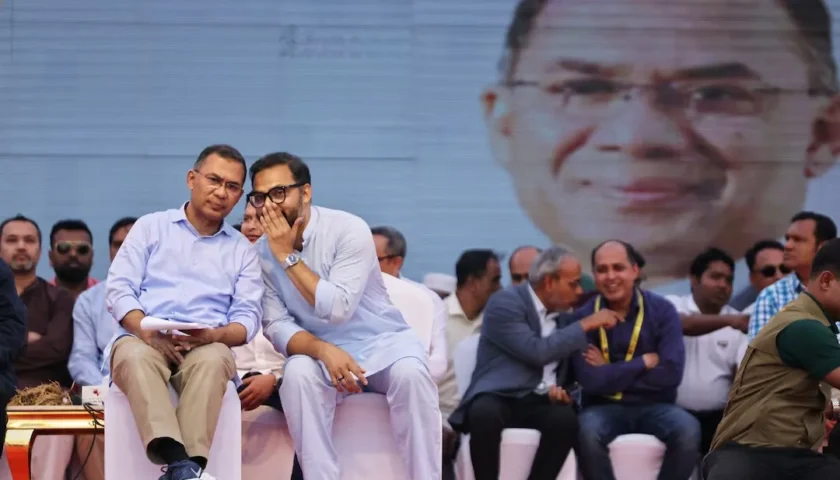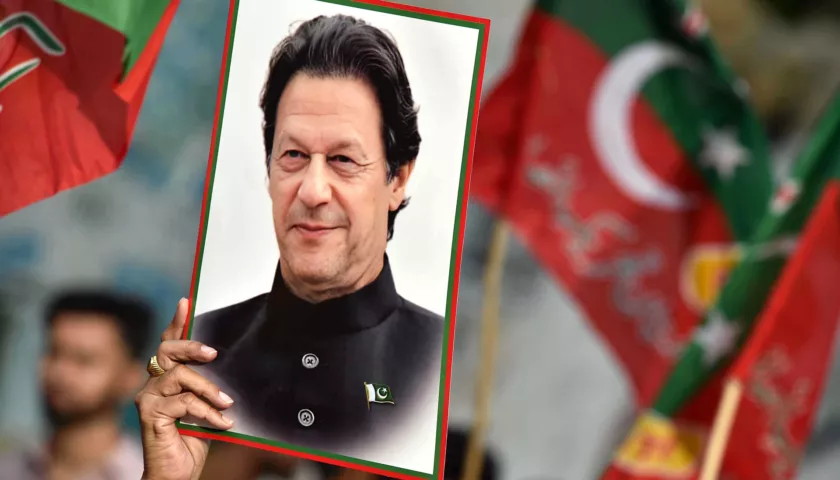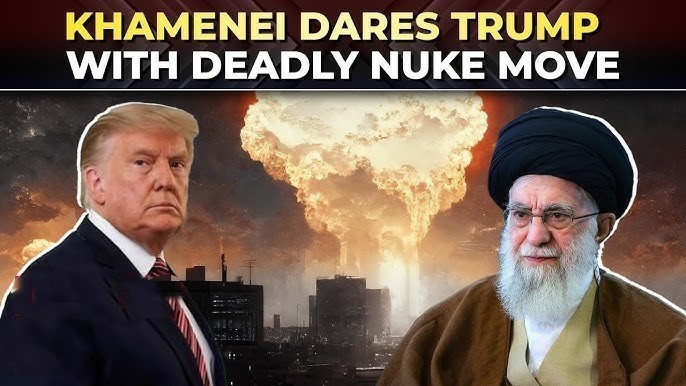From Bombs to Bargains – A Shift in Global Drama
By: Javid Amin | 25 June 2025
The war is officially over, but the political theater is just beginning. In a move equal parts defiance and diplomacy, former U.S. President Donald Trump has announced that high-level talks between the United States and Iran will begin next week, turning the page from Operation Midnight Hammer to what he now calls “The Great Deal, Part Two.”
This diplomatic pivot comes barely a week after U.S. warplanes hammered Iranian nuclear facilities, in what was described as a pre-emptive strike to neutralize Tehran’s atomic capabilities. Now, even Iran’s leadership has conceded: their underground infrastructure has suffered “significant and irreversible damage.”
In a geopolitical moment steeped in irony, bravado, and satire, the world finds itself navigating post-war diplomacy on a tightrope of ego, exhaustion, and strategic necessity.
The End of Operation Midnight Hammer
What Was Operation Midnight Hammer?
Launched on short notice, Operation Midnight Hammer was an ambitious air campaign designed to destroy Iran’s suspected nuclear infrastructure. U.S. stealth bombers targeted key locations including Natanz, Fordow, and Isfahan, striking deep into fortified underground bunkers.
- Pentagon sources say 80% of Iran’s uranium enrichment capability was destroyed.
- Cyber warfare tools were reportedly used to disable radar and air defense systems.
- The strikes lasted over 9 hours, causing massive blackouts across central Iran.
Though Washington claimed success, Tehran initially downplayed the scale—until now.
Iran’s Admission of Damage
In a rare press conference, Iran’s Atomic Energy Organization admitted that the U.S. strikes had “badly damaged” critical nuclear research and enrichment facilities.
“We have lost substantial infrastructure. It will take years to recover,” admitted an Iranian official under anonymity.
This marks a turning point in Iran’s posture: from denial to reluctant acceptance—possibly influenced by mounting internal pressure and international scrutiny.
Trump’s Announcement – From War Talk to Deal Talk
The Trump Doctrine, Rebooted
In classic Trump fashion, the announcement was made during a Florida rally, not a press briefing:
“I told Bibi, I told the Ayatollah—time to sit down. We’re going to get a deal. A beautiful deal. The best deal. And it starts next week.”
Analysts say this shift is emblematic of Trump’s transactional approach to foreign policy:
- Bomb first, negotiate later
- Use force to gain leverage
- Frame diplomacy as personal triumph
While controversial, it’s an approach that has brought both chaos and breakthroughs, such as the Abraham Accords and early-stage North Korea talks.
What’s Expected from the US-Iran Talks?
Although no agenda has been released, insiders suggest the following topics will dominate:
- Nuclear disarmament and verification mechanisms
- Sanctions relief and economic aid
- Reinstating JCPOA-style clauses with stronger enforcement
- Iran’s role in regional militancy (Hezbollah, Syria, Yemen)
But perhaps more intriguing than the issues themselves is the casting of characters: Trump, Netanyahu, the Supreme Leader, and Europe’s cautious observers—each with their script, audience, and endgame.
NATO’s Bizarre Endorsement – “Daddy Trump” Enters the Stage
At a NATO summit in The Hague, the drama took a surreal turn. NATO Secretary General Mark Rutte, formerly Dutch PM and now leading the alliance, defended Trump’s vulgar language in a moment of levity:
“And then Daddy has to sometimes use strong language,” he joked, referring to Trump’s comparison of Israel and Iran to schoolyard kids.
Reactions to the Comment
- Some leaders laughed, others looked visibly uncomfortable.
- European media outlets were divided—some calling it a “joke in poor taste,” others a “humanizing moment.”
- The Iranian Foreign Ministry slammed the comments as “mockery of international diplomacy.”
Despite the controversy, Rutte’s defense signals a possible alignment of NATO with Trump-era pragmatism, acknowledging that traditional diplomacy may no longer work in a fractured world order.
The Global Reaction – Relief, Caution, and Deep Skepticism
Middle East: War Fatigue Meets Suspicion
Countries like Saudi Arabia, Qatar, and Turkey welcomed the ceasefire but remained wary of any U.S.-Iran rapprochement. Israel, meanwhile, has maintained silence—possibly calculating its next move as Trump tries to play both peacemaker and power broker.
Europe: Quietly Supportive, Loudly Anxious
The EU has offered to serve as a neutral ground for future talks but has cautioned against overreliance on “celebrity diplomacy.”
“We support peace, but substance must trump showmanship,” said an EU official.
China and Russia: Watching, Waiting, Whispering
- Beijing has increased backchannel talks with Tehran.
- Moscow has publicly criticized the U.S. airstrikes but privately expressed relief at reduced tensions.
The multipolar chessboard is in motion, and no one is quite sure whose king is safest.
Will the Ceasefire Hold?
Fragile Peace or Delayed Conflagration?
While the ceasefire technically holds, missile threats, drone violations, and proxy skirmishes continue.
A senior U.S. defense official stated:
“This is a pause, not peace. We’re one miscalculation away from chaos.”
Iran’s Warning
Supreme Leader Ayatollah Khamenei issued a cryptic message, declaring:
“We bend. We do not break. And we never forget.”
The line has been interpreted as both willingness to talk and readiness to retaliate, depending on the deal Trump puts on the table.
Political Implications in the U.S. and Iran
Trump’s 2025 Playbook
This ceasefire and the promise of talks could reshape the American political landscape as Trump positions himself as both a warrior and dealmaker.
- His base cheers the flex of power
- Independents may admire the pivot to peace
- Critics warn of vanity diplomacy with fragile outcomes
Iran’s Domestic Landscape
Hardliners are furious at the acknowledged damage to nuclear sites, while moderates cautiously welcome a reprieve from further destruction.
Public protests have lessened, but economic pain, censorship, and distrust in leadership remain pressing issues.
Bottom-Line: What Comes After Fire and Fury?
The post-war chapter of US-Iran relations is being written with a pen dipped in paradox: brute force followed by bold diplomacy, international shock followed by global curiosity.
Whether this becomes a genuine peace initiative or another act in Trump’s political theater remains to be seen. But one thing is certain:
The world is no longer negotiating with governments alone. It’s negotiating with personalities, populists, and unpredictable forces.
And in this world, diplomacy may require not just a seat at the table, but a strong stomach for spectacle.




